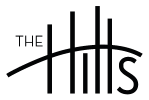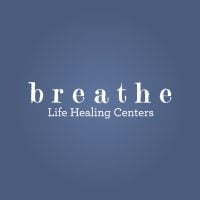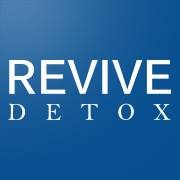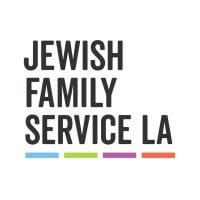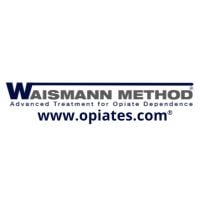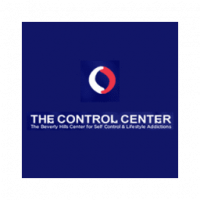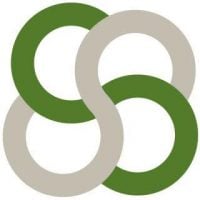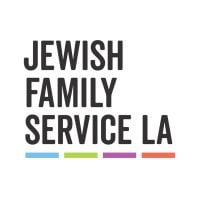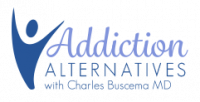The Hills Outpatient Center
Drug Rehab Center in Los Angeles, California
The Hills Outpatient Center in Los Angeles, California offers specialized care for alcoholism, opioid addiction, dual diagnosis, eating disorders, drug addiction, and mental health issues, providing various evidence-based services and therapies, along with aftercare support, to help individuals achieve lasting recovery.
About This California Facility
The Hills Outpatient Center, situated in Los Angeles, CA, is a specialized treatment facility focusing on helping individuals overcome alcoholism, drug addiction, eating disorders, and mental health issues. With a capacity of 20 beds, this center offers personalized care in a supportive environment. The Hills Outpatient Center stands out for its:
• Comprehensive range of services, including drug rehab, dual-diagnosis treatment, and sober-living houses
• Evidence-based therapies tailored to meet each individual's specific needs
• Strong emphasis on aftercare support to ensure long-term success in recovery
Accredited by CARF, NAATP, and holding a valid state license, The Hills Outpatient Center accepts private health insurance, ensuring accessible care for those in need. The facility's dedicated team of professionals provides a holistic approach to treatment, addressing the unique challenges faced by each client.
The Hills Outpatient Center specializes in treating alcoholism, opioid addiction, drug addiction, eating disorders, and mental health issues. They offer a continuum of care, including intensive outpatient programs, outpatient services, and residential treatment, along with counseling, psychotherapy, group therapy, and family therapy to support lasting recovery.
Genders
Ages
Modality
Additional
Accreditations
State License
NAATP

CARF
The Commission on Accreditation of Rehabilitation Facilities (CARF) is a non-profit organization that specifically accredits rehab organizations. Founded in 1966, CARF's, mission is to help service providers like rehab facilities maintain high standards of care.
Conditions and Issues Treated
Opioids are a set of drugs prescribed for pain relief. Opioid addiction for California residents refers to the compulsive seeking of opioids, even when they are not required medically. Treatment involves medication-assisted therapy in which medicines, counseling, and behavioral therapies are all utilized at The Hills Outpatient Center.
A dual-diagnosis describes two medical issues that are happening at the same time. They may or may not be related. Over 50% of people with an addiction in California have another mental health condition. Screening for both addiction and any untreated mental health issue is essential, and individually managed by The Hills Outpatient Center.
Levels of Care Offered at The Hills Outpatient Center
This center offers a variety of custom treatment tailored to individual recovery. Currently available are Aftercare Support, Drug Rehab, Dual-Diagnosis, Intensive Outpatient, Outpatient, Residential, Sober-Living / Half-Way, with additional therapies available as listed below.
The Hills Outpatient Center offers an Intensive Outpatient Program is for those who need intensive care but prefer to spend the majority of their time in the comfort of their own home. The rehabilitation services differ in length and intensity. They are customized to meet the needs of the patient.
Sober living houses reinforce healthy living behaviors and can help prevent relapse. They are designed to feel more like a home with greater independence and privacy. A sober living house in Los Angeles, CA managed by The Hills Outpatient Center might incorporate random drug screening, curfews, rotating chores, group meetings.
Residential treatment programs are those that offer housing and meals in addition to substance abuse treatment. Rehab facilities that offer residential treatment allow patients to focus solely on recovery, in an environment totally separate from their lives. Some rehab centers specialize in short-term residential treatment (a few days to a week or two), while others solely provide treatment on a long-term basis (several weeks to months). Some offer both, and tailor treatment to the patient’s individual requirements.
Aftercare support refers to the follow-up care provided after the initial rehab program. The quality of aftercare support plays an important role in preventing relapses and sustains recovery. Aftercare support at The Hills Outpatient Center is personalized according to the needs of the patient in California.
Therapies & Programs
Individual therapy refers to one-on-one psychotherapy between a patient and their The Hills Outpatient Center therapist. Individual therapy seeks to help identify the issues that drive and contribute to a client’s addiction or alcoholism. Another goal of individual counseling is to assist the client to learn how to manage their lives without alcohol or drugs.
Group therapy occurs in a group setting as opposed to a one on one setting. It benefits patients by providing a feeling of support and letting them know they are not alone. Patients at The Hills Outpatient Center also learn to build trust and understanding and gain perspective through discussions.
After experiencing trauma, it’s crucial to look for a facility that can provide trauma therapy. This approach zeroes in on the traumatic incidents that a patient has encountered in the past, recent or not. It’s been widely known that trauma can make an individual resort to alcohol or other substances to mask their troubles and pain. Trauma can originate from domestic violence, sexual abuse, an early encounter with death, sexual assault, and many more. The goal of trauma therapy at The Hills Outpatient Center in Los Angeles, CA is to help the patient see beyond the trauma and move forward. Mental health professionals will facilitate the patient’s journey and see to it that he or she is no longer a victim of his or her traumatic experiences and has wholly regained his or her personal power.
DBT, also known as dialectical behavior therapy, is a form of cognitive behavioral therapy (CBT) that helps people understand how their thoughts, behaviors, and feelings all connect. This can give them more control over their actions, effectively stopping self-harm ideations and attempts in some patients. It can also help put people in control over some mental struggles, like borderline personality disorder.
Most individuals suffering from addiction have low self-awareness, so they end up making poor decisions. Cognitive Behavioral Therapy (CBT) is suitable for patients recovering from an addiction of any kind. Through it, patients become more aligned with their thoughts, emotions, and behaviors, giving them a better opportunity to respond appropriately to temptations and negative feelings.
This therapy modality at The Hills Outpatient Center in Los Angeles, CA strengthens a person’s ability to stay on top of their emotional state and learn new stress management techniques so they won’t give in to the temptations easily. Moreover, CBT helps people communicate and express their emotions well, which can be vital in relapse management. CBT is also suitable for managing co-occurring disorders like depression and bipolar illness.
Eye Movement Desensitization and Reprocessing (EMDR) is designed to help patients process trauma. During the therapy, patients follow a bar of light or watch their therapist’s finger move back and forth. This mimics the eye movements of REM sleep. These are the same movements that allow the brain to reprocess memories. When traumatic memories are reprocessed, it reduces the impact they have on emotions. This treatment, offered by The Hills Outpatient Center, can be helpful to patients who turn to drugs to escape painful memories.
When it comes to maintaining sobriety, people who quit recovery without developing life skills are disadvantaged. While teaching life skills at The Hills Outpatient Center is difficult, support with aftercare helps patients learn these skills over time. Life skills include getting a career, living in a good environment, self-care, and finance management, all in Los Angeles, CA.
Nutrition Therapy, or Medical Nutrition Therapy (MNT), focuses on improving a patient’s mental and physical health through diet. A diet that is low in certain nutrients can lead to emotions that can trigger addiction or relapse. The Hills Outpatient Center‘s Nutritional therapy promotes healthy eating to heal the body and prevent addictive behavior.
Patient Experience
Creative Arts
Creative arts therapy helps people in recovery at The Hills Outpatient Center explore feelings and emotions in a safe environment. Journaling, music, and visual arts, among many others, can help people express themselves in new ways. The goal of creative arts therapy is not an end-product; rather, the process of creating art itself is therapeutic.
Experiential Therapy at The Hills Outpatient Center
Experiential therapy is a non-traditional treatment that uses physical activities to help work through troubling emotions. Role-playing, use of props, and re-enactments are just a few common techniques in experiential therapy at The Hills Outpatient Center. Its goal is to help people work with troubling emotions, memories, and trauma that are the source of their psychological issues
Payment Options Accepted
For specific insurance or payment methods please contact us.
Is your insurance accepted?
Ask an expert, call (888) 674-0062
Additional Details
Specifics, location, and helpful extra information.
Los Angeles, California 90046 Phone Number(855) 725-8210 Meta DetailsUpdated April 15, 2024
Staff Verified
Patient Reviews
There are no reviews yet. Be the first one to write one.
Los Angeles, California Addiction Information
More than 3 million of California's citizens are addicted to illegal drugs. Almost 800,000 people use hard drugs, almost 5 million use marijuana, and another 2.1 million abuse alcohol every year. Other substance abuse issues such as binge drinking and teen drug use are also common. Many illegal drugs such as cocaine, heroin, methamphetamine, and marijuana are smuggled into the state from Mexico.
10% of adults in Los Angeles have used illicit drugs or abused prescription drugs within the past year. Heroin, marijuana, prescription pain relievers and cocaine are widely abused in Los Angeles. Over 130,000 people in the city struggle with addiction to drugs or alcohol. Many residential rehab facilities in the area can provide long-term care. The best way to find the right treatment option is to speak with a professional.
Treatment in Nearby Cities
- Santa Rosa, CA (386.6 mi.)
- El Centro, CA (184.9 mi.)
- Compton, CA (15.5 mi.)
- Turlock, CA (273.8 mi.)
- Rosemead, CA (16.9 mi.)
Centers near The Hills Outpatient Center
The facility name, logo and brand are the property and registered trademarks of The Hills Outpatient Center, and are being used for identification and informational purposes only. Use of these names, logos and brands shall not imply endorsement. RehabNow.org is not affiliated with or sponsored by The Hills Outpatient Center.
